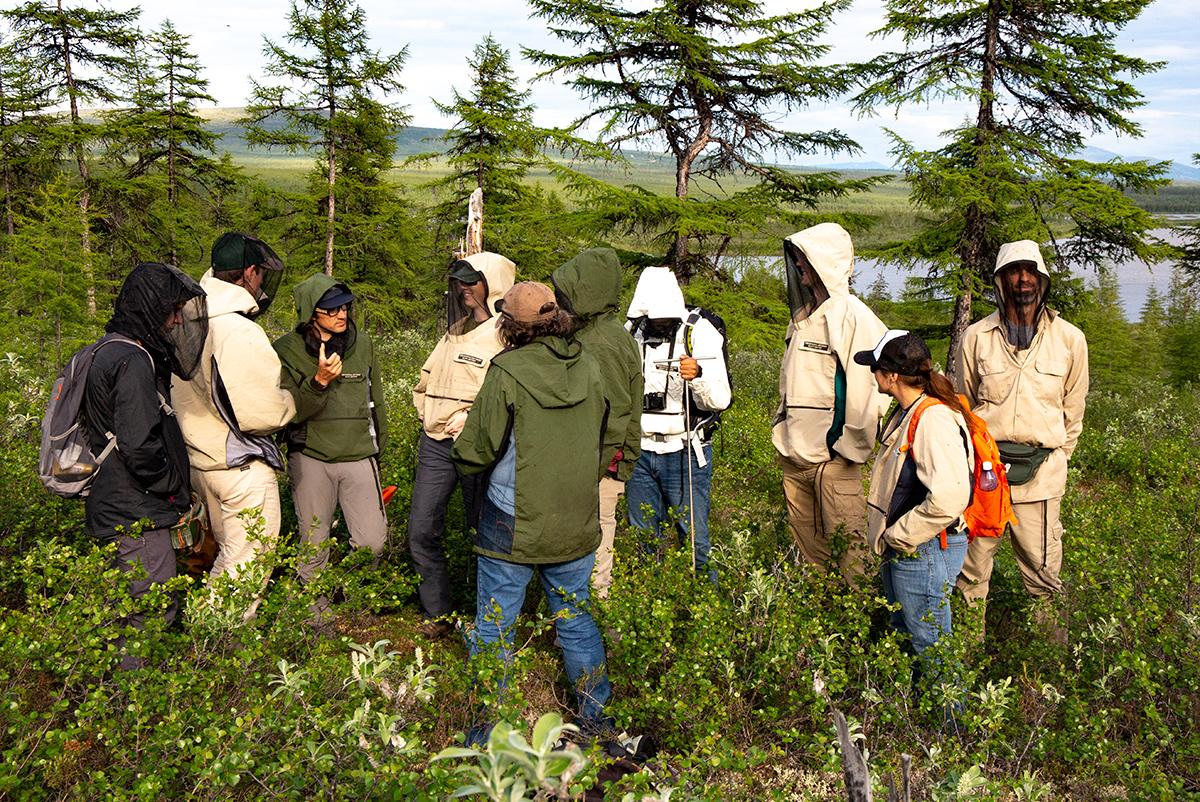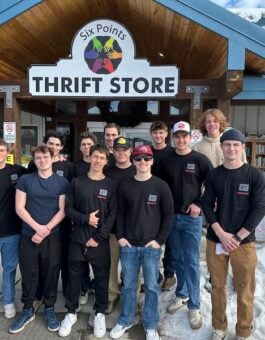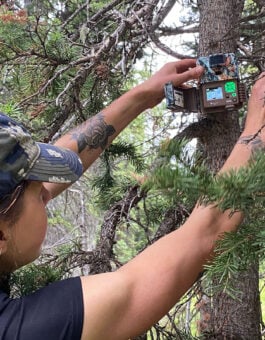What started with the desire to educate the public about the validity of science grew into a full-blown documentary. Now, “Smoldering Ice,” a film made through a collaboration by Western alumni Aaron Lewis and Clark Thompson along with Environment and Sustainability lecturer Jennie DeMarco and others, is receiving critical acclaim. Most recently the film, which examines the impacts of wildfires in Siberia on the ecosystems in our own backyards, has been included in the Colorado Environmental Film Festival, Feb. 12-21.
“Siberia is so far away but it’s affecting us in the United States and in Colorado,” Lewis said. “I didn’t set out to do this, but I didn’t shy away. I’m passionate about science education and inspiration—getting people to care about something. Stories reach people.”
The project began in 2016 as one open door of opportunity led to another. Western, along with six other universities, had received at National Science Foundation grant funding a research trip to Siberia to study why more frequent wildfires there has led to the thawing of peat moss and the release of carbon dioxide.
Building a Team
The repercussions of the carbon dioxide release further add to conditions that scientists say are fueling climate change throughout the world. At the same time DeMarco was seeking a research assistant to accompany her to Siberia, Lewis was seeking to complete his final project as a student in the Master of Environmental Management program.
His desire was to educate the world on the benefit of scientific research and the work that goes into it. He was inspired to film the process of data collection while he assisted on the Siberia project. While the grant paid for Lewis’ travel, he was responsible for all other expenses related to the film. He recruited film making student Thompson to travel with him to capture the video.
Learning in the Field
The days were endless in Siberia, with the sun never setting, further driving Lewis to create. He and Thompson would spend 10-12 hours in the field; Lewis collecting data and Thompson filming. After settling down at 9 p.m. each night, Lewis would interview his fellow scientists about the work.
“The movie tells the story of Aaron discovering new information and interviewing the scientists,” said DeMarco. “It shows him really learning what scientists do.”
The project grew organically. After five weeks in Siberia, the crew returned home. Lewis partnered with Communication Arts Professor Jack Lucido and local media producer Alan Wartes through a fellowship at the ICELab, a business incubator on the Western campus. Lucido and Wartes helped Lewis learn how to tell the story through the film medium and develop the skills to continue to grow in the industry.
“I learned more skills in a year than I have in my entire life,” said Lewis of the abilities he gained in film making, budgeting and organization. “It was a job that often takes 40 people to do, and we did it with a little more than four.”
Telling a Story With Science
Since premiering the 25-minute film has gained the attention of several film festivals. “Smoldering Ice” was a semi-finalist in the L.A. Student Film Festival and received a silver rating in the Spotlight Documentary Film Awards. Now, with an appearance in the Colorado Environmental Film Festival, Lewis has been invited to participate in a virtual question and answer session as part of the multi-day event. Still, to Lewis, awards and recognition are simply icing on the cake.
“I want people to know how important the topic (climate change) is for one, and secondarily, I want people to understand the process of science. Regular people bringing back information for everyone to read,” Lewis said. “People think scientists are the ‘elite,’ or out for funding. But the information they gather is telling the story, and these people work really hard for this stuff.”
Discover more about the film and the impacts of Siberian wildfires.
Author Credit: Chris Rourke
Photo Credit: Jennie DeMarco


